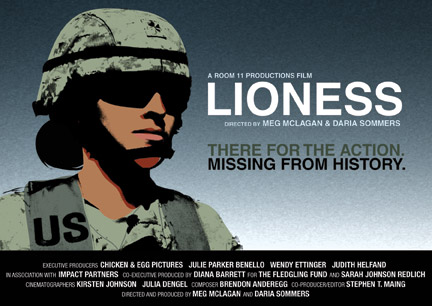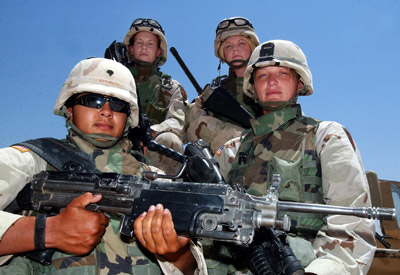WHAT’S THE STORY?

WHAT WERE THE GOALS?
The team’s outreach strategy was centered around several challenges that women soldiers and veterans faced in 2008 that had serious consequences on both human and institutional levels. These included:- Inadequate training due to the combat exclusion policy.
- Inadequate documentation of their service making which affected their ability to receive appropriate VA benefits.
- Lack of understanding of the unique mental and physical health care needs of women veterans that are not adequately served by a system based on a male model of care.
- Issues of gender equity (the brass ceiling) due in part to the ban on women in combat.
WHAT WAS DONE?
- The National Summit of Women Veterans’ Issues (June 2008), where they reached over 400 people, including women veterans, VA employees, as well as representatives from veteran service organizations, veteran nonprofits, and Department of Defense health officials.
- The Evolving Paradigms II Conference (September 2009), a large conference for VA and DoD veteran healthcare providers sponsored by the Department of Veterans’ Affairs, Veterans’ Health Administration, and the Women Veterans Strategic Healthcare Group. Its purpose was to refine the system of post-combat care for all those returning from Iraq and Afghanistan. Over 3,000 people attended the screening.
- The Defense Department Advisory Committee on the Status of Women in Services (DACOWITS) (May 2009), which advises the Department of Defense on issues relating to women in the armed forces. Lioness screened at a DACOWITS conference, and the producers were told that the Committee planned to use some of the information from the film and the discussion following in a formal report.
- Center for Women Veterans, an advocacy office within the VA which reviews VA programs and services for women veterans to assure that women veterans receive benefits and services on a par with male veterans, and encounter no discrimination in their attempt to access them. The partnership with the Center for Women Veterans, and by extension with state women veteran coordinators at VA facilities across the country, has led to Lioness becoming institutionalized as an educational and clinical component of women veteran care at the VA.
- Disabled American Veterans, a 1.2 million member non-profit veteran service organization dedicated to building better lives for America’s disabled veterans and their families, has become an significant advocate for legislation supporting the issues of women veterans. Lioness partnered with DAV in order to execute its Capital Hill Screening. DAV’s expertise provided Lioness with insider knowledge of the legislative process and ongoing advice on how to navigate the subtle politics involved in bringing a project like this to fruition.
WHAT WAS ACHIEVED?

